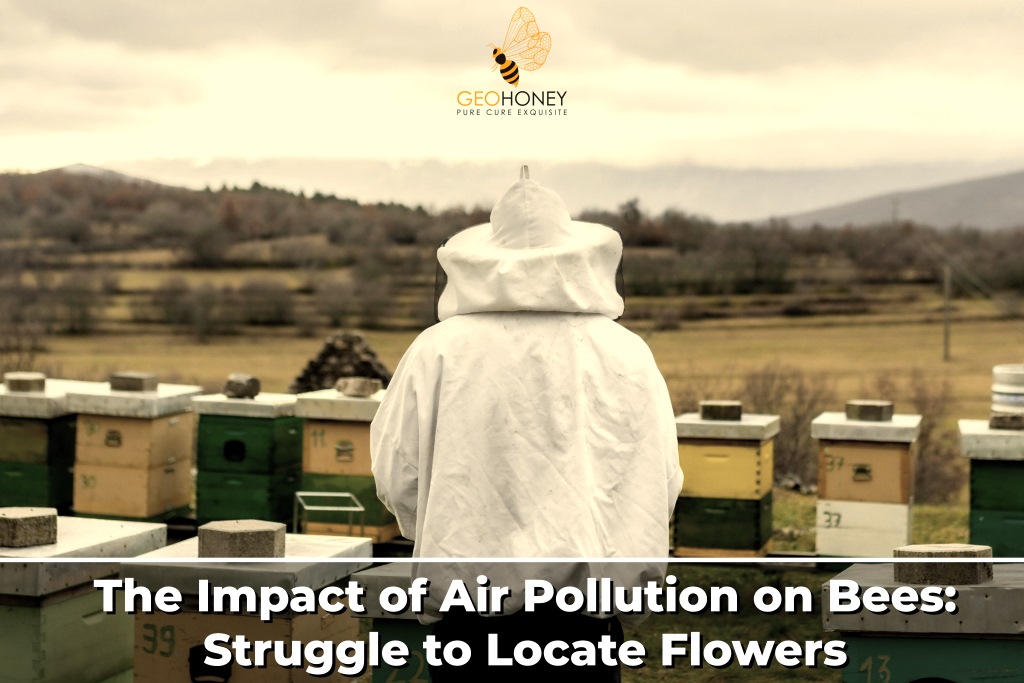- Tokyo: 10:33
- Singapore: 09:33
- Dubai: 05:33
- London: 01:33
- New York: 20:33
The Impact of Air Pollution on Bees: Struggle to Locate Flowers

A collaborative study conducted by the UK Centre for Ecology & Hydrology (UKCEH), along with several universities and research partners, has revealed that air pollution, specifically ground-level ozone, has significant effects on bees ability to locate flowers. The research found that ozone alters the size and fragrance of floral odour plumes released by flowers, reducing honeybees' detection capabilities by up to 90% at close distances.
The study's findings indicate that ozone's impact on floral scent can disrupt pollinators crucial role in the natural environment and have implications for food security. The decrease in crop yields and wildflower populations due to ozone has already been observed through international research, highlighting the severe impact on food production.
Given that about 90% of wild flowering plants and 75% of food crops rely on animal pollination, understanding the negative effects on pollination is vital for preserving essential services such as food production, textiles, biofuels, and medications.
The researchers at Surrey University conducted experiments using a wind tunnel to track the effects of ozone on odour plumes' size and composition. They discovered that ozone not only reduced the size of the plumes but also significantly altered their aroma. Honey Bees, which rely on floral scents to locate flowers and associate them with nectar production, were exposed to these altered scents. The study revealed that bees' ability to detect and identify flowers diminished as they were exposed to ozone-altered plumes.
At a distance of 6 meters, only 52% of honeybees were able to detect the odour in the center of the plumes, while at 12 meters, this number dropped to 38%. Moreover, only a tenth of the bees could identify a flower from 12 meters away, compared to 32% at the edge of the plumes, which degraded more rapidly. The study also suggested that ozone might impact other odour-related behaviors in insects, such as attracting mates.
This research highlights the detrimental effects of air pollution, not only on biodiversity and human health but also on the crucial work performed by bees and other pollinators. It emphasizes the importance of reducing air pollution to preserve biodiversity and secure future food production.
Source: birmingham.ac.uk




It is difficult for them to find for the flowers, for them to produce honey, and to pollinate more.
Air pollution results in it being more difficult for pollinators such as honeybees. As we all know air pollution is hazardous not just to us humans but also to all living things.